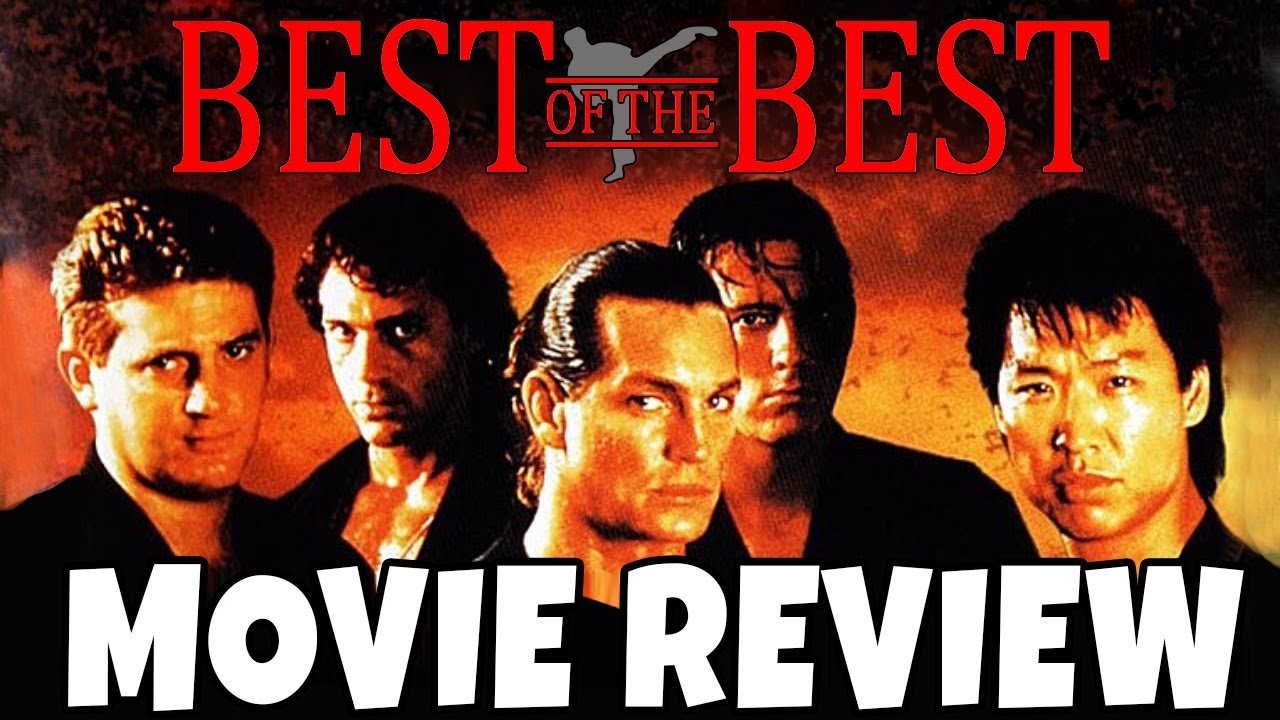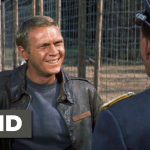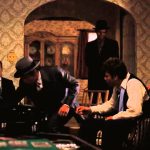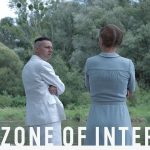Best of the Best (1989)

“Best of the Best,” released in 1989, is a gripping martial arts film that combines intense action with a compelling narrative of honor, teamwork, and personal growth. Directed by Bob Radler and produced by Phillip Rhee, who also co-wrote the story and starred in the film, “Best of the Best” features a strong cast including Eric Roberts, James Earl Jones, Sally Kirkland, Simon Rhee, and Chris Penn. The film stands out not only for its thrilling martial arts sequences but also for its exploration of character development and the dynamics of team sports.
The film’s plot revolves around a team of American martial artists who are selected to represent their country in an international taekwondo competition against a formidable Korean team. The American team, led by Coach Richard “Richie” Ryan (James Earl Jones) and including the skilled and determined team members Alex Grady (Eric Roberts), Tommy Lee (Phillip Rhee), and others, faces numerous challenges both on and off the mat as they prepare for the high-stakes tournament.

Bob Radler’s direction brings a dynamic and engaging approach to the martial arts genre. Radler, known for his background in both film and television, skillfully blends action and drama to create a narrative that is both exhilarating and emotionally resonant. His direction ensures that the fight scenes are choreographed with precision and intensity, while also focusing on the personal struggles and growth of the characters. This balance between action and character development is central to the film’s appeal, making it more than just a typical martial arts movie.

Phillip Rhee, who not only co-wrote the story but also stars as Tommy Lee, delivers a standout performance. Rhee’s portrayal of Tommy, a dedicated and skilled martial artist with a personal stake in the competition, is both compelling and relatable. His performance showcases his impressive martial arts skills and adds depth to the character, reflecting Tommy’s inner conflicts and motivations. Rhee’s involvement in the film as both a creator and actor highlights his passion for the project and his commitment to bringing authenticity to the role.
Eric Roberts, playing Alex Grady, provides a strong and nuanced performance as a former champion who is drawn back into competitive martial arts by the opportunity to represent his country. Roberts captures Alex’s journey from a disillusioned fighter to a determined competitor, bringing emotional depth and vulnerability to the role. His character’s personal struggles and ultimate redemption add a layer of dramatic tension to the film, making Alex Grady a memorable and sympathetic protagonist.
James Earl Jones, as Coach Richie Ryan, brings gravitas and authority to the film. Jones’s portrayal of the seasoned coach who must rally and motivate his diverse team is both commanding and inspirational. His performance provides a strong foundation for the film, underscoring the importance of leadership, mentorship, and the values of sportsmanship and teamwork. Sally Kirkland, as a supportive character, adds additional emotional depth to the story, further enriching the film’s narrative.
Simon Rhee, a highly skilled martial artist and actor, plays the role of Dae Han, the leader of the Korean team and a formidable opponent. Rhee’s performance adds an element of intensity and authenticity to the film’s martial arts sequences. His portrayal of Dae Han highlights the respect and rivalry between the two teams, creating a compelling and dynamic competition that drives the film’s narrative.
Chris Penn, as the team member who struggles with his own insecurities and challenges, delivers a strong performance that adds an element of realism to the film. Penn’s portrayal of a character grappling with personal issues and the pressures of competition provides a grounded and relatable aspect to the story, further enhancing the film’s emotional impact.

The screenplay, co-written by Phillip Rhee, focuses on themes of honor, perseverance, and the importance of teamwork. The dialogue is engaging and effective in conveying the characters’ motivations and conflicts. The film’s emphasis on personal growth and the bonds formed between the team members adds depth to the story, making it more than just a series of martial arts battles. The screenplay also incorporates elements of suspense and drama, ensuring that the audience remains invested in the characters’ journeys and the outcome of the competition.
The film’s action sequences are a standout feature, with well-choreographed fight scenes that showcase the martial artists’ skills and abilities. The choreography, combined with dynamic camera work and editing, creates a thrilling and visually engaging experience. The action scenes are not only impressive in their technical execution but also serve to advance the film’s narrative and highlight the characters’ growth and development.

Despite its strengths, “Best of the Best” has faced some criticism, particularly regarding its portrayal of martial arts and the formulaic nature of its plot. Some viewers may find the film’s story to be predictable or its character arcs to be conventional. However, these aspects also contribute to the film’s accessibility and appeal, making it a satisfying and enjoyable experience for fans of the genre.
In conclusion, “Best of the Best” is a compelling and well-crafted martial arts film that successfully combines action, drama, and character development. Directed by Bob Radler and featuring strong performances from Eric Roberts, James Earl Jones, Phillip Rhee, and the rest of the cast, the film offers an engaging and emotionally resonant story. Its exploration of themes such as honor, teamwork, and personal growth, combined with its impressive martial arts sequences, makes “Best of the Best” a memorable and impactful entry in the genre.











